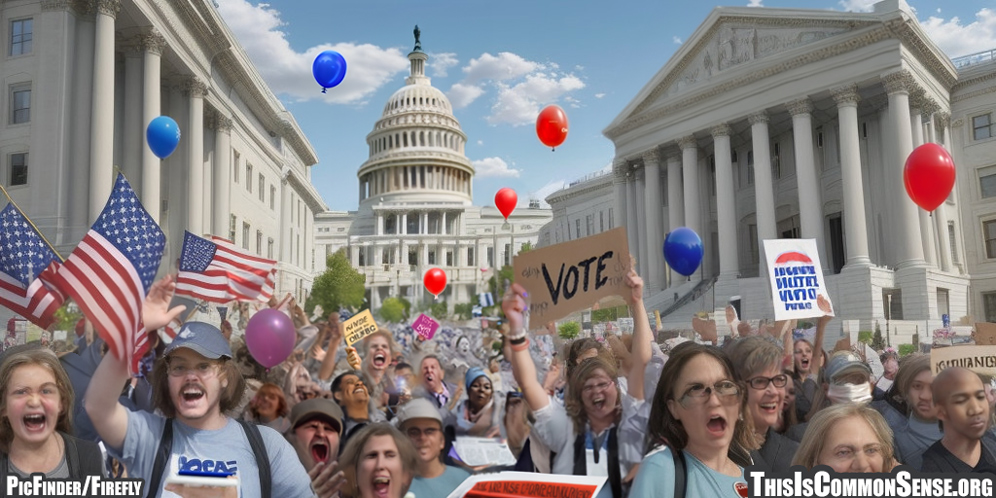Do Democrats support noncitizen voting?
It depends.
Which Democrats do you mean?
A clear majority of voters who identify as supporters of the Democratic Party oppose giving the vote to noncitizens. Specifically, they support the Citizen Only Voting Amendments (COVA) on the ballot this election in eight states — Idaho. Iowa, Kentucky, Missouri, North Carolina, Oklahoma, South Carolina, and Wisconsin.*
For instance, polling shows Democratic voters in North Carolina favor the only citizen voting measure by an eight to one margin. Among Republicans the margin is a whopping 22 to one. Most Democratic legislators joined every Republican in voting to place the amendment on the ballot, but less enthusiastically: 42 yes votes, 16 no votes and ten abstentions.
In Georgia, 70 percent of Democrats supported passing a Citizen Only Voting Amendment. Republican support was 93 percent with 76 percent of independents in favor. But while every Republican in the Peach State’s House of Representatives voted in the affirmative on HR780, not one single Democrat did so.
Though not as lopsided as Republicans or independents, 83 percent of whom favor citizen only voting, 59 percent of Kentucky Democrats are supportive, a four to one margin. Yet, while every Republican legislator voted yes, less than one in five Democratic legislators were supportive.
In Wisconsin, 76 percent of voters like the Citizen Only Voting Amendment, including 57 percent of Democrats residing outside the legislature. Inside the legislature, every single Democrat opposed the amendment.
In this two-year legislative cycle, votes were cast in 21 chambers in eleven states. The partisan difference between elected Republicans and Democrats was stark. Not a single Republican voted against the COVA, compiling over a thousand yes votes. Conversely, more Democratic legislators voted against COVA than for it.
Do Democrats support noncitizen voting? Most elected Democrats, yes.
This is Common Sense. I’m Paul Jacob.
Note: Additionally, all 19 of the cities where noncitizens are now legally voting, including noncitizens in the country illegally, are very progressive. All are sanctuary cities and governed (nearly) exclusively by Democrats.
* Voters have previously passed COVAs in six other states going back to 2018: Alabama, Colorado, Florida, Louisiana, North Dakota, and Ohio.
Illustration created with PicFinder and Firefly
—
See all recent commentary
(simplified and organized)





